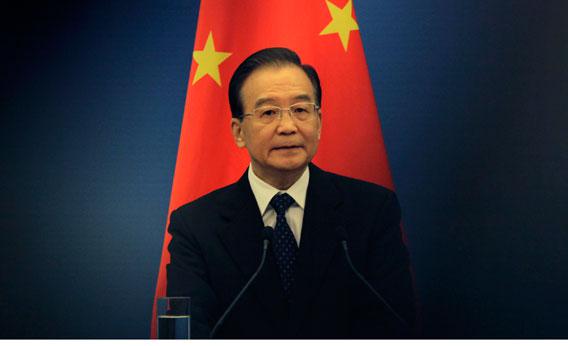America is still recovering from the Great Recession and Europe is melting down, yet from a global perspective, the economy has never been as healthy or prosperous. The world economy enjoyed amazing growth from 2002-08, took a small dip in 2009, and then went back to growing. Sadly the good news seems to be coming to an end in Brazil, China, and India, and that’s horrible news for us.
Mercedes-Benz, Brazil’s No. 2 maker of trucks and buses, announced early Wednesday morning that it would be laying off 1,500 workers in Latin America’s largest market. Volvo AB has also announced a temporary halt to Brazilian truck production. The first half of May saw a staggering 22 percent year-on-year drop in Brazilian heavy vehicle purchases. Overall economic growth slowed last year to a bit under 3 percent, and Brazil’s finance minister recently had to cut the 2012 growth forecast to a number many private forecasters think is still too high. And problems for Brazil aren’t just problems for Brazil, as neighboring Argentina (and other smaller countries like Uruguay and Paraguay) rely on Brazil to buy their exports.
More alarmingly, both China and India are running into trouble. Catch-up growth, in which a poor country improves its public policy, begins importing foreign production techniques, and gets rapidly richer is a time-honored Asian tradition. We saw it in Japan, then South Korea, then Taiwan and other Asian “tiger” economies in the 1980s and ’90s. China and India are so large that their catch-up growth was able to raise the entire worldwide rate of economic growth. That’s why the world economy kept growing through the 2008-09 financial calamity.
The slowdown in India, which remains a much poorer country than China, is very alarming. Even as its economy surged recently, the country did little to raise the productivity of the agricultural sector in which most Indians work. The Indian government had a promising idea on that score: to open the retail sector to foreign firms such as Wal-Mart and Carrefour. Large international chains have experience working with farmers in more productive countries and could be the mechanism for transferring better methods to Indian growers. That could have meant higher agricultural wages and better living standards for India’s urban poor. But faced with pressure from incumbent retailing interests, the government backed down from the plan. That was both a lost opportunity and a blow to the confidence of foreign investors.
And then there’s China. Most of China’s growth takeoff in the aughts was powered, famously, by exports to rich countries—especially the United States. When we stumbled into recession, China needed to change. And change it has. The country’s total trade surplus is now modest enough that it runs deficits in some months.
But rather than rebalancing to a more conventional consumer-focused economy, the Chinese government weathered the recession by engineering an unprecedented boom in domestic real estate and infrastructure investment. Investment is a good thing, but there was simply no way for the country to sustain double-digit growth in investment. Inevitably, the real estate market has started to unravel and even though the official GDP figures still look strong, other data less amenable to manipulation such as electricity demand and railroad shipments show a sharp slowdown.
Which brings us back to Brazil’s trucks. The world’s developing economies are now tightly linked. China’s boom has been excellent news for Brazil’s exports of airplanes and agricultural products, and, as we’ve seen, Brazilian growth has powered Argentine exports. That in turn has produced a market throughout the region for local car and truck production. Commodity exports have also spurred Africa’s best decade on record. The continent is such an economic minnow that its solid growth has gone largely unnoticed, but in terms of human welfare, increased incomes in the poorest part of the world have meant huge gains, including a very rapid decline in child mortality.
The Chinese growth dynamo that rescued the world economy after the financial crisis isn’t going to reappear this time around. That means the stakes as Europe confronts the ongoing meltdown of its banks and America faces the prospect of a new debt ceiling standoff are higher than ever. The bad economic news of 2008-09 came with the major silver lining that growth continued in the places that needed it most. This time around, if the rich countries can’t get our act together, the whole world will spiral into recession.
